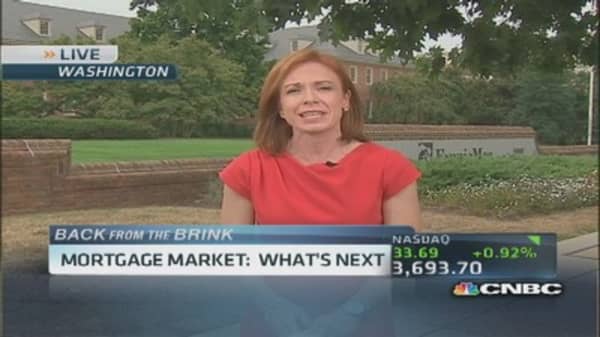The data come just a week before U.S. Federal Reserve policymakers meet to consider slowing a massive bond-buying program, which includes purchases of mortgage-backed securities.
The Fed's support has been a major factor in boosting home prices in the United States after a slump during the crisis, and many economists worry that a pullback now may set back the housing market's nascent recovery.
Borrowing costs have soared by more than a percentage point since late May on views the Fed will soon taper its $85 billion per month in buying of MBS and Treasuries.
MBA data showed 30-year mortgage rates rose 7 basis points to 4.80 percent, matching an earlier high for 2013.
The refinancing index slumped 20.2 percent to 1,528.5, off 71 percent since its 2013 high in May and now at its lowest since June 2009, another sign that higher interest rates are starting to hit homeowners.
The effect of higher interest rates on home buying has been a worry for economists and bankers alike recently.
Bank of America, in fact, is laying off thousands of positions because of weak refinancing activity.
And Wells Fargo & Co, the largest U.S. mortgage lender, expects to make 30 percent fewer home loans this quarter due to rising interest rates, its financial chief said on Monday.
Fed policymakers will meet on Sept. 17-18 to consider whether to slow the bank's substantial help to the economy.
The mortgage survey covers over 75 percent of U.S. retail residential mortgage applications, according to MBA.




